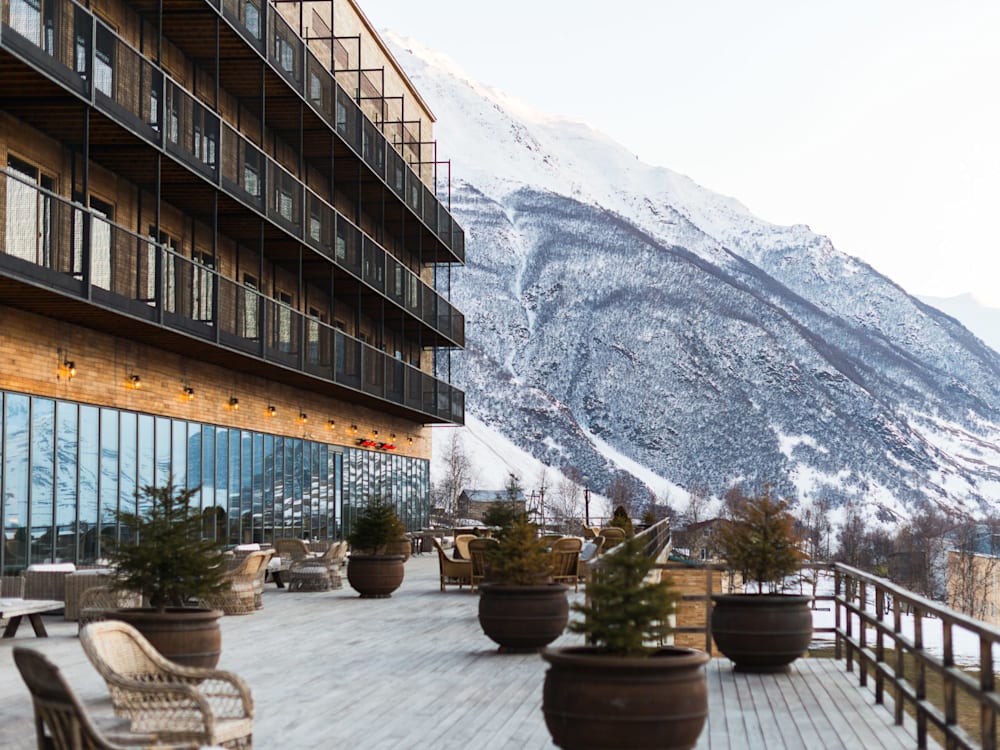Travel is a chance to reinvent yourself. Not in that clichéd, motivational-quote kind of way. In a practical who’s-actually-gonna-know sense. Go somewhere new, pretend you’re someone else. Think about it: lottery winner, feng shui consultant, arms dealer, talent spotter. You could spend every plane ride spinning ever-more-detailed backstories. Or method-act a better (or badder) version of yourself.
The possibilities are addictive. But if you’re really serious about it, if this is more than just a pipe dream, then there’s one destination which is custom-made for reincarnation. A year ago, Georgia was tricky to locate on a map (nope, not that one). Today, discerning travellers can’t stop raving about the former Soviet state that has reinvented itself: the legalisation of cannabis, a heralded cuisine, flourishing nightlife. This is somewhere new; could it be somewhere to be new, too?
‘You like techno?’ my taxi driver asks as we zip from the airport through wide, shadowy avenues towards night-time Tbilisi. ‘Sure’, I say, before adding: ‘I’m heading into the mountains tomorrow’. He nods, but before I can say ‘…to location scout for the next Terence Malick movie’, he interrupts. ‘Ah, then you should hear Chakrulo’. We lurch across traffic as he scrolls his phone to replace the stereo’s metronomic beats with a choral folk song about, apparently, hard-drinking shepherds. Unwittingly, he’s juxtaposed Georgia’s threefold charms: techno, wine and wilderness.
Taxi drivers would repeatedly blast techno at me during my stay. It’s a curious thing: the crossover appeal of an otherwise underground genre is entirely feasible here. My guess is that Georgia has been quietly modernising in the post-internet age, where social media is a stronger driver of popular culture than the US Billboard chart. How fitting that an under-the-radar destination should shun mainstream pop, too. And it’s a cultural shift, as I discovered later at Tbilisi’s techno clubs, that has contributed – not just nationally, but internationally – to a more permissive society.

Entering into the atrium of Stamba Hotel, another institution that’s spearheading Georgia’s newfound confidence, my gaze is drawn upwards to a striking brutalist skeleton, the result of the merciless stripping out of five floors. In the daytime, I’m told, light will pour into this space through the glass bottom of a rooftop pool. Beyond, reception is flanked by shelves sparsely lined with books and vinyl. This nod to openness and transparency is a response to the building’s previous life: a Soviet publishing house. Most hotels come with a history; this one stands out for having none. Or, at least, one that was systematically erased by previous tenants. I stride towards the receptionist, keen to erase mine, too. He sees me coming, and to my disappointment guesses correctly who I am.
Beyond the foyer, a broad, low-lit bar is peopled by a subversive, well-dressed crowd, soundtracked by crisp techno popping from freestanding McIntosh MC257 speakers (smaller versions of which are found in guest rooms). It’s here, knocking back Chacha cocktails with two coiffured locals, I learn how undeniably techno has gripped Tbilisi, at goth-inspired or DIY-style spots such as Khidi, Prince Bar and Drama. But the undisputed overlord is Bassiani, a converted concrete swimming pool in the bowels of the national stadium and home to monthly queer night Horoom. It’s an unforgiving, jet-black space where nosebleed techno is administered to an ecstatic, counter-cultural crowd. If reinvention is your tipple, here be the place.

Still, if conservative Georgia isn’t quite ready to embrace progressive, gender-fluid club culture (Bassiani was raided several times in the past two years, when liberal drug reforms were on the table), then at least the country is united over the international resurgence of its oldest export: wine. Georgians are today proud to be spoken of as the likely inventors of wine. But it hasn’t always been the case. For decades, Georgian winemakers assumed inferiority to Europe’s rival producers. But as the global market shifts towards ‘return-to-source’ ideals, the country’s ancient qvevri wine-making process has caught the zeitgeist. In fact Georgia, known to the pre-Christian world as Colchis, has always been considered a land of bounty. It was, after all, where Jason and his Argonauts rocked up in search of the golden fleece.
Centuries later, it seems the Russians were keen admirers, too. John Steinbeck, passing through in the 1940s, remarked: ‘Wherever we had been in Russia, the magical name of Georgia came up. People spoke of Georgia with a kind of longing and admiration – of Georgians as supermen, great drinkers, great dancers, great musicians, great workers and lovers. And they spoke of the country in the Caucasus as a kind of second heaven.’
But while Russia’s infatuation manifested in the brutal Soviet occupation of the 20th century, Georgia has seldom returned the compliment. In May 2006, Georgian defence minister Irakli Okrushvili admitted that many Georgian wine producers were exporting falsified wine to Russia. His excuse? ‘Because Russia is a market where you can sell even turds’. Russia promptly banned importation from across the border, which hit Georgia hard: Russia accounted for 80 per cent of sales.

A decade on, and the picture couldn’t be more different. Georgian wine is on the menu in the most forward-thinking bars in London, Paris and New York. Qvevri are in fact ancient terracotta vessels lined with beeswax, which are filled with grapes, buried in the ground and left to age. This means whites are often amber-coloured; reds spicy and herbaceous. Then there’s Saperavi, the very dry red you’ll find on tables at Georgian meals. It’s a flavour popular enough to be sold as an ice cream by vendors around Tbilisi’s tourist-centric Old Town. I devoured one to cool off after a soak in the city’s royal sulphur baths – ‘Tbilisi’ means ‘warm location’ on account of its natural hot springs.
Thermal activity, too, is responsible for the string of dormant stratovolcanoes that constitute the Greater Caucasus to the north; mountains that confirm Georgia’s reputation as a remote, mysterious land. So while culture is undergoing rapid change to the south, up here – at 1,800m above sea level – it’s all about the stillness of time. The Caucasus rise into a cold, crisp sky at the far end of the vertiginous Georgian Military Highway, which connects Tbilisi with Vladivostok in Russia. Up here, beyond the Gudauri ski zone and the lonely (and somewhat ironic) Russia–Georgia Friendship Monument, is the townlet of Stepantsminda, huddled at the foot of the show-stealing Mt Kazbek.

This is the barren, soundless landscape that the poet Mikhail Lermontov was exiled to as a sickly child, and where he did what all brooding 19th-century Russian poets are expected to do: wander alone for months at a time, connecting existentially with his higher self. These smouldering, snow-tipped peaks and crags are the setting for his most famous poem, Demon, in which a devil gets a little too horny with a Georgian princess and ends up devastatingly alone.
Today, a taste of that desolation is more accessible than you’d think. Stamba Hotel has a sister stay up here in Stepantsminda: Rooms Hotel Kazbegi. Modelled after a wilderness lodge, with a long, hall-like lounge-restaurant hung with animal hides and skulls, its crowning glory is its rows of balconied rooms and communal decking serving a single purpose: the contemplation of Mt Kazbek and its roaming demons. The only feature, in fact, that challenges the dominance of the mountain is the Gergeti Trinity Church, bowing to its neighbour from the summit of a nearer-to-town ridge.
It was on the afternoon of a half-day hike out here in Stepantsminda’s mountainous silence that I finally achieved my reinvention. No, I didn’t tackle my own ‘demons’, I didn’t realise the person I should become is ‘me’. Instead, I became a committed convert of Georgia, a country where you can hike in the shadow of the Caucasus by morning, taste otherworldly food and wine in the afternoon, and assail the peaks and troughs of a killer techno set in the heart of a buzzing city that same night.
Converted? Continue the party with the rest of our boutique hotels in Georgia.



